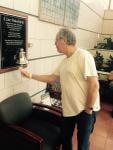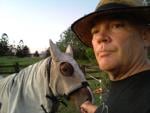How many of us had Physical Therapy after surgery?

I did, prescribed by my surgeon. I think this helped me with post op gas problems and set me well on the way to recovery. I had the same after IL2. I cant believe its not prescribed for everyone. Certainly, if I was starting this journey now, I would ask for it.
Thoughts anyone?
Comments
-
Sounds like a good idea
PT sounds like a good idea. What sort of things did your PT sessions include? How many did you have? Of course it would probably help if the physical therapist had a clear view of what one's activity level was pre-op.
I'm at a bit of a loss at the moment, trying to figure out what exactly is getting back into being active but "not twisting" and "no heavy lifting." Pre-op, I could easily sling two cases of water bottles (at once) into the back of an SUV. Post-op, I had to try to convince the wee dog that he could certainly hop up on the bed, etc on his own because all of his 12 pounds was a bit more than I could handle. This week, I pulled the garbage bag out of the patio trash can, cinched it up, and carried it out to the front yard wheelie bin. Huh. Nice to know that the innards are knitting themselves together nicely, but I don't plan slinging cases of anything or twisting the night away for a while yet.
Too bad I'm not still working out with a coach. The last one was good at getting me to do an amazing workout, but not in a damaging way. I guess I just need to pay attention to what my body is (and isn't) ready to do, then do it (or not).
0 -
2013 - a long time agoJerzyGrrl said:Sounds like a good idea
PT sounds like a good idea. What sort of things did your PT sessions include? How many did you have? Of course it would probably help if the physical therapist had a clear view of what one's activity level was pre-op.
I'm at a bit of a loss at the moment, trying to figure out what exactly is getting back into being active but "not twisting" and "no heavy lifting." Pre-op, I could easily sling two cases of water bottles (at once) into the back of an SUV. Post-op, I had to try to convince the wee dog that he could certainly hop up on the bed, etc on his own because all of his 12 pounds was a bit more than I could handle. This week, I pulled the garbage bag out of the patio trash can, cinched it up, and carried it out to the front yard wheelie bin. Huh. Nice to know that the innards are knitting themselves together nicely, but I don't plan slinging cases of anything or twisting the night away for a while yet.
Too bad I'm not still working out with a coach. The last one was good at getting me to do an amazing workout, but not in a damaging way. I guess I just need to pay attention to what my body is (and isn't) ready to do, then do it (or not).
I'm sure Fox could talk about it more accurately, I believe it is his profession.
The first meeting established a baseline. I believe I was prescribed up to 40 sessions (my surgery was a little more interesting than it need be).
We did stuff I would not have considered exercize. Lifting one leg at a time, walking on the spot, walking in a straight line, playing with a ball and walking in a swimming pool... a little pedalling on a machine. Basically working very gently on one muscle at a time. I was inclined to laugh at it (at first) and then I felt my strength and flexibility and confidence returning.
I thought it was marvellous and really added to the healing process, it was also great fun 45 minutes 2 or 3 times a week. I was referred by my surgeon and also by my oncologist after IL2, of course, you could be referred by any Doctor.
After my prescription ran out, I signed up for the YMCA and hired a personal trainer but it wasnt in the same league at all.
I would ask for it after surgery. I would recommend it for anyone.
0 -
Donna'n'Stubstub1969 said:Count me out
I didn't have PT nor did it ever come up in conversation during my appointments with the surgical team.
Stub
They told me not to pick up anything heavier than 1/2 Gallon of milk.
Stub: I think I was very lucky. If I did it again (I'd run out of kidneys, but thats a different subject). If I did it again, or God forbid, family or friend needed something similar, I'd recommend they request it. It might not be appropriate for some people, I dont know. But, as I'm sure you can tell, I thought it was great.
0 -
since you asked,
You can seldom see a good therapist working. There is alot going on in interpreting patients motivation, pain, reflexive protection and previous function. Most people first believe that they need to get stronger after trauma, injury, or surgery in order to return to normal. What is really needed is to get your previous strength back. Entirely different. Our bodies have a strong drive for self preservation. Protective neurological motor inhibition happens to reduce risk of further damage by shutting down motor activities. Watch the super bowl on sunday and you will see the biggest strongest athletes in the world get knocked down on their butt. They don't always get right back up. As with a medical procedure, the immediate impact to our homeostasis is compromised. Normal function cannot return until the body completes it's checks and balances.
A good therapist constantly reads reflexive responses to activity and works from there. From bed mobility to transfers and ambulation, a therapist begins with what is working and builds upon it. As we expand recruitment of motor function, we watch for obstacles. It could be too acute a stage, or adhesions or nerve damage which block our return to normal. You cannot fight against a reflex. If you over push, the response from stressing a vulnerable area does not let you work through it. Resistant response 1, effort 1. Tie score. You could work hard for a month and have zero progress. But if you can avoid initiating a strong pain or withdrawl protective response, the score is 1 to nothing for the patient. Now we are make progress. You cannot force something to respond favorably by torture.
Using me as an example. My cancer has caused significant damage to my spinal cord. A couple years back I had near total loss of my right upper extremity and 75% loss to my left. I've lost about 75 pounds of muscle. Yet today I am 100% functional in all my activities of daily living. I golf, play guitar, and to all who observe me they see no deficits. Despite only achieving the strength of a 6-8 yo boy. That is why I always tell new careivers to treat the man not the chart. I can't tell you how many times I've said that it is a good thing this happened to me and not any of you who read this. Few would survive what I've been through. I could compete in Dancing with the Stars, as long as I didn't have to lift my partner. How nicely this fits with Foots observation that much of his therapy was not therapeutic exercise as he imagined it. This will be the first year I can begin to concentrate on developing more strength. I do not know what my potential is as I must also maintain proper ratios of agonist and antagonist muscle groups and patterns.
The good news is that most issues people have resolve with time. If not, get a therapist. Bad habits, compensation, and future risk of further injury can be minimized.
0 -
If you were to go through this againfoxhd said:since you asked,
You can seldom see a good therapist working. There is alot going on in interpreting patients motivation, pain, reflexive protection and previous function. Most people first believe that they need to get stronger after trauma, injury, or surgery in order to return to normal. What is really needed is to get your previous strength back. Entirely different. Our bodies have a strong drive for self preservation. Protective neurological motor inhibition happens to reduce risk of further damage by shutting down motor activities. Watch the super bowl on sunday and you will see the biggest strongest athletes in the world get knocked down on their butt. They don't always get right back up. As with a medical procedure, the immediate impact to our homeostasis is compromised. Normal function cannot return until the body completes it's checks and balances.
A good therapist constantly reads reflexive responses to activity and works from there. From bed mobility to transfers and ambulation, a therapist begins with what is working and builds upon it. As we expand recruitment of motor function, we watch for obstacles. It could be too acute a stage, or adhesions or nerve damage which block our return to normal. You cannot fight against a reflex. If you over push, the response from stressing a vulnerable area does not let you work through it. Resistant response 1, effort 1. Tie score. You could work hard for a month and have zero progress. But if you can avoid initiating a strong pain or withdrawl protective response, the score is 1 to nothing for the patient. Now we are make progress. You cannot force something to respond favorably by torture.
Using me as an example. My cancer has caused significant damage to my spinal cord. A couple years back I had near total loss of my right upper extremity and 75% loss to my left. I've lost about 75 pounds of muscle. Yet today I am 100% functional in all my activities of daily living. I golf, play guitar, and to all who observe me they see no deficits. Despite only achieving the strength of a 6-8 yo boy. That is why I always tell new careivers to treat the man not the chart. I can't tell you how many times I've said that it is a good thing this happened to me and not any of you who read this. Few would survive what I've been through. I could compete in Dancing with the Stars, as long as I didn't have to lift my partner. How nicely this fits with Foots observation that much of his therapy was not therapeutic exercise as he imagined it. This will be the first year I can begin to concentrate on developing more strength. I do not know what my potential is as I must also maintain proper ratios of agonist and antagonist muscle groups and patterns.
The good news is that most issues people have resolve with time. If not, get a therapist. Bad habits, compensation, and future risk of further injury can be minimized.
Would you ask to be prescribed PT after the surgery? Or indeed IL2?
0 -
r u asking me?
I was still working full time. Doing what I descibe above. I was lucky that I knew exactly what to do. I was fit and strong. But I wouldn't have refused the stand by assist in getting up the first couple times. After my admission when I developed the neuro damage, I did ask for an Occupational therapist for some adaptive equipement, utensils and such. In subsequent admissions I did ask for a therapist. It was so they could document that I was safe and independent. That allowed me to be able to get up and ambulate ad lib. After Il-2 I could have used a psychologist.
0 -
PT
I hever had PT perscribed post surgery but I did start walking right away. I started walking a mile a day the second day home from the hospital, it was the longest mile of my life, and my doctor and wife jumped on me about it since I was not real stable and I had an 11 inch scar healing on my left side, but I was bored so I went walking, it felt great to be out and more importanlty it empowered me mentally, that is to say I was not going to be defined by cancer. Since I have been on chemo I have not walked hardly at all but I just started again and made it a mile yesterday for the first time in a year, and man did that feel good, even though the CABO is messing with my esphogus and breathing, as well as my energy level, I felt like I conqured another roadblock and I plan on working my way up to three miles a day in a month and a half and eventually five miles a day. By walking like I did and am now doing a gain I can see where PT would acomplish a lot towards recovery as well as mental strength.
0 -
No PT early on
As told before my first surgery was lengthy and extensive; and after 3 weeks the activities of daily living were not the most effective. Then I went to ER with a Pancreaitis attack, which set me back a week or so. But at 6 weeks post surgery, when I was released after the incision was healed, I headed to the pool at least 3 days a week or more. As a PE teacher, I knew how to isolate groups of muscles, but started easily just walking in chest deep water. then added jogging, high knees, arm resistance for shoulders-pecs-biceps, wall push-ups and a variety of things that worked all of the hip flexors and extensors. Then I took the foam noodle into the deeper water and worked on my abs and back both for flexibility and strength. Finally, I worked on endurance by doing flutter kicks-1 minute hard and 30 sec. slow. I continually added 5 minute blocks and alternated front to back until I was up to 30-45 minutes solid.
I had been going to work 1-2 hours a day once I was released. After a couple of months, I was able to work pretty much a full day. I used this same type of pool exercise with each abdominal surgery, and other than some mildy droopy skin around the incision, I can still wear a size 10 pant.
And in the midst of all this-between 1st and 2nd surgeries for cancer, I fell an broke my ankle (tri-maleolar fracture on tib-bib, and dislocated my foot 90 degrees.) That put me in a cast for 7 weeks and then a walking boot. Crutches for 7 weeks caused a trigger thumb and grew a large nodule on the the tendon, which needed surgery to give me about 40% motion on my R. thumb. No PT, either.
Here on the west coast, I haven't heard of any cancer patients being prescribed specific PT. Lung cancer patients may be sent for respiratory treatments to learn how to inhale and exhale more deeply.
Whatever you do, just get well, and keep on being tough.
Hugs,
donna_lee
0 -
Non prescribed
As others have said and suggested, I walked. I started walking about 4 hours out of surgery and I walked every day for the first month and thereafter I started swimming as my PT. PT was never prescribed or even discussed. I will say it took a while until I felt like the area of the incision was well muscled again. Almost 4 years on it still itches occasionally. Best of luck
0 -
Just did stuff
i just wanted to put this all behind me like it never happened.
within hours i was walking a few steps and resting. within 2 weeks I went out to dinner with my wife leaning on my new fashionable cain.
5-6 weeks later I climbed a deer stand and made a killed and cleaned it.
I think you just have to do stuff. If a structured PT prgram helps direct you thats great. Just know youll get tired and sore and need lots of naps and tylenol and after your next nap just get up and do more stuff. It aint easy but in the long run its good i think
0 -
No PT
Like many others here, I had no PT besides the visit in hospital from one to help me figure out how to get out of bed correctly...I think it would be helpful. After my surgery and treatment for breast cancer 8 years ago, I joined an exercise program put on by the Livestrong Foundation at the local YMCA. It was wonderful, helped with so many things I didn't realize I needed help with, like balance and just daily activities. It helped me emotionally and mentally as well. I am going to try to get into another program after this recovery...and start walking more. Thank you all for your thoughts and ideas and humor. Helps me so much.
0 -
In this hospital
I have been seen by two physiotherapists. They seemed to be checking my progress rather than advising. I don't remember anything they said except that one showed me how to use the breathing exercise thingie. Certainly nothing like what fox described.
0 -
breathing exercise thingie
Really important you use it to avoid pneumonia and other such brands of fun
0 -
Physical ExerciseSteve.Adam said:In this hospital
I have been seen by two physiotherapists. They seemed to be checking my progress rather than advising. I don't remember anything they said except that one showed me how to use the breathing exercise thingie. Certainly nothing like what fox described.
I remember the breathing thing. It was annoyning and i didnt like it. I know it is very important and people who dont do it well get pnemonia at a higher rate but i kind of felt like if i could show them i could hit the blue line then i was good. I would practice a little to make sure i was ready to show them when they asked.
Walking was more of a challenge I was eager to take on. Everyone told me the sooner i could walk I would heal faster. I "HATED" how cancer made me feel like a victim, so each few hours I would set a goal a little further out (with my walker of course....lol) and i would try and make a point of stopping by the nurses station and talking and trying to be cheerful.....just to kind of prove that I had cancer but it doesnt have me!
0 -
I Did
I did, but my case is kind of strange.
I had the radical nephrectomy; removing my left kidney and the giant, attached tumor, making the whole mass the size of a football.
Nobody, not the urologist, the imagery tech, anyone, noticed the other tumors I had throughout my body.
A tumor on my spine (T6, T7) compressed my spinal cord and I lost all function below my waist. I went in for another surgery to "debulk" that tumor and regain my lower body function.
I've have 3 months of physical therapy to get my movement back. I can walk (shuffle) 500 feet without a cane, and go further with my cane following physical therapy.
0
Discussion Boards
- All Discussion Boards
- 6 CSN Information
- 6 Welcome to CSN
- 121.2K Cancer specific
- 2.8K Anal Cancer
- 440 Bladder Cancer
- 306 Bone Cancers
- 1.6K Brain Cancer
- 28.4K Breast Cancer
- 391 Childhood Cancers
- 27.9K Colorectal Cancer
- 4.6K Esophageal Cancer
- 1.2K Gynecological Cancers (other than ovarian and uterine)
- 12.9K Head and Neck Cancer
- 6.3K Kidney Cancer
- 666 Leukemia
- 789 Liver Cancer
- 4.1K Lung Cancer
- 5.1K Lymphoma (Hodgkin and Non-Hodgkin)
- 235 Multiple Myeloma
- 7.1K Ovarian Cancer
- 53 Pancreatic Cancer
- 486 Peritoneal Cancer
- 5.3K Prostate Cancer
- 1.2K Rare and Other Cancers
- 532 Sarcoma
- 717 Skin Cancer
- 647 Stomach Cancer
- 190 Testicular Cancer
- 1.5K Thyroid Cancer
- 5.8K Uterine/Endometrial Cancer
- 6.3K Lifestyle Discussion Boards









